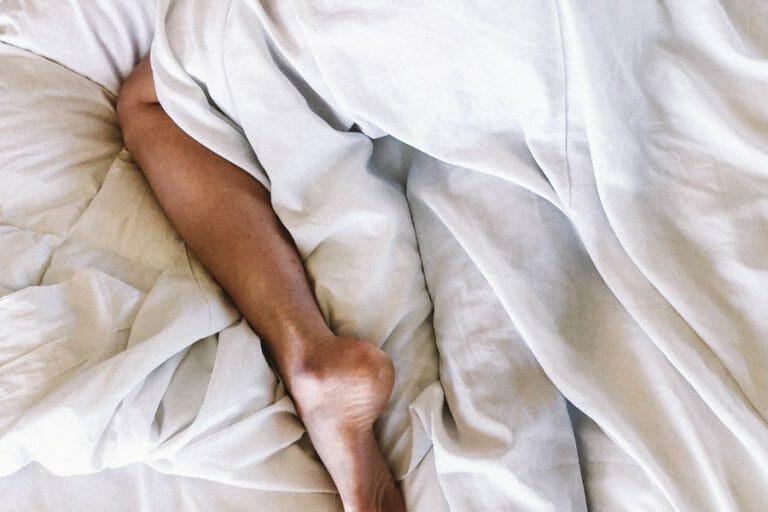5 Simple Ways to Fill Your Tank & Improve Your Mental Health
Out of Gas, Mama?

Here are five simple, effective tools you can use for a tune-up today.
Mindful Movement
Have you viewed exercise through a lens of punishment? Ever since I shifted my view of movement as medicine, I have truly found joy in moving my body. Learn to listen to the cues and respond accordingly. Commit to finding time each day and see how you feel mentally after consistent movement for 30 days. I promise you’ll feel the heavy fog lift. Ten minutes of stretching, a brisk, quick walk, or a sweaty cardio session. The benefits are endless and if you haven’t tapped into them, this is your sign to give it a go.
If you’re looking for more on this conversation, check out our chat with HERself podcast on the mental shift to find joy in movement.
Need an accountability buddy? Phone a friend! You’re more likely to stick to it if you’re meeting someone or looking forward to time spent with them. We also love Materra Method for all things gentle movement. She keeps mama in mind as she guides you through various lengths and intensities from the comfort of almost anywhere! Bonus, The Matrescence members receive an exclusive discount.

NOURISH YOUR BODY
Focus on these nourishing food sources:
- Omega 3 Fatty Acids – a key nutrient that affects the way our brain functions and what emotions we feel. Examples are salmon, walnuts, chia seeds, and flax seeds
- L-Lysine Protein Rich Foods – some research suggests it may help reduce the stress hormone cortisol in some people. Examples are red meat, fish, and cheese
- Magnesium Rich Foods – studies suggest an optimal intake of magnesium can support mood, calm stress, and improve sleep. Examples are spinach, dark leafy greens, whole grains
Looking to boost your mood and/or improve your sleep?! We’ve got you covered with our favorite supplements from NEEDED:
- Sleep + Relaxation Support
- Magnesium is needed for every cell in your body to function. It supports relaxation, improved sleep quality, and cognitive function. Blending 3 forms of Magnesium supports time-release and optimal absorption.
- L-Theanine Promotes alpha-wave brain activity, the brain waves that help reduce stress
- L-Glycine decreases how long it takes to fall asleep, enhances sleep quality, lessens daytime sleepiness, and improves cognition.
- Chamomile flower extract has long been used to promote relaxation and gives a subtle sweetness to the drink.
- Stress Support
- clinical-strength blend of 6 pure and potent adaptogenic and nervine botanicals traditionally used in Ayurveda, Chinese medicine, and herbalism to nourish and support the central nervous system and more.
Use Code: THEMATRESCENCE for 20% off your oder!
Proper sleep hygiene
I was stuck in the cycle of insomnia and anxiety after my second son was born, and oh boy did it have a tight hold on me. Anxious thoughts kept me up and lack of sleep fed the beast. It is becoming clear that there is a bidirectional relationship between sleep and mental health and it can be such a vicious one to break free from. Poor or insufficient sleep has been found to increase negative emotional responses to stressors and to decrease positive emotions. Sleep deprivation studies show that otherwise healthy people can experience increased anxiety and distress levels following poor sleep. (Makes sense why new mothers are prone to intrusive thoughts and anxiety!). Seems simple, but we have had it ingrained in us that skipping sleep is a sign of productivity and strength, where in reality, it is quite the opposite.
Menu of tune-ups:
- Lifestyle Changes
- Cut back on alcohol
- Cut back on caffeine
- Learn to say, “no.” As a recovering ‘yes girl’ this was a hard skill for me to learn, and to be honest I’m still working on it, but it has truly allowed me to live a life aligned with my values.
- Improve Your Sleep Hygiene
- Wondering how you’re supposed to do that in motherhood? We got you! Check out our Guide To Restful Sleep in Motherhood.
- Cognitive behavioral therapy
- Gold standard if you are truly dealing with insomnia and have tried various remedies unsuccessfully.

Therapy
The Matrescence is proud to partner with BetterHelp to bridge the gap in support for mothers. Tap into the world’s largest network of licensed, accredited, and experienced therapists who can help you with a range of issues including depression, anxiety, relationships, trauma, grief, and more. With our therapists, you get the same professionalism and quality you would expect from an in-office therapist, but with the ability to communicate when and how you want. BetterHelp Therapists are there when you need them no matter your preference of communication message, chat, phone, or video. Use code: thematrescence for 15% off your first month! As a BetterHelp affiliate, we may receive compensation from BetterHelp if you purchase products or services through the links provided.
Using evidence-based practices, therapy can help and have a number of potential benefits and long-term benefits with any number of problems or even just navigating life’s ups and downs. It can help you develop coping strategies and you may learn which mental health activities can help you manage daily stressors and emotions and enact positive changes in your life and overall well-being.
Online therapy is often considered a more accessible form of treatment as it circumvents many common barriers to treatment, including high costs, geographical and time constraints, and perceived stigma. These benefits can pave the way for positive changes.

Community Support
The U.S. Department of Health and Human Services recognized peer support services as an evidence-based mental health model of care which consists of a qualified peer support provider who assists individuals with their recovery from mental illness. By having a peer support network, you’ll be able to access tools to help:
- Articulating goals for recovery
- Learning and practicing new skills
- Monitoring progress
- Modeling effective coping techniques and self-help strategies
- Developing and implementing recovery plans
Peer support leverages shared experience to foster trust, decrease stigma, and create a sustainable forum for those seeking help by sharing information about support resources and positive coping strategies. Using this research and our own personal experiences, The Matrescence was born. Our private-digital community serves as a safe space to talk about “the hard stuff.”







